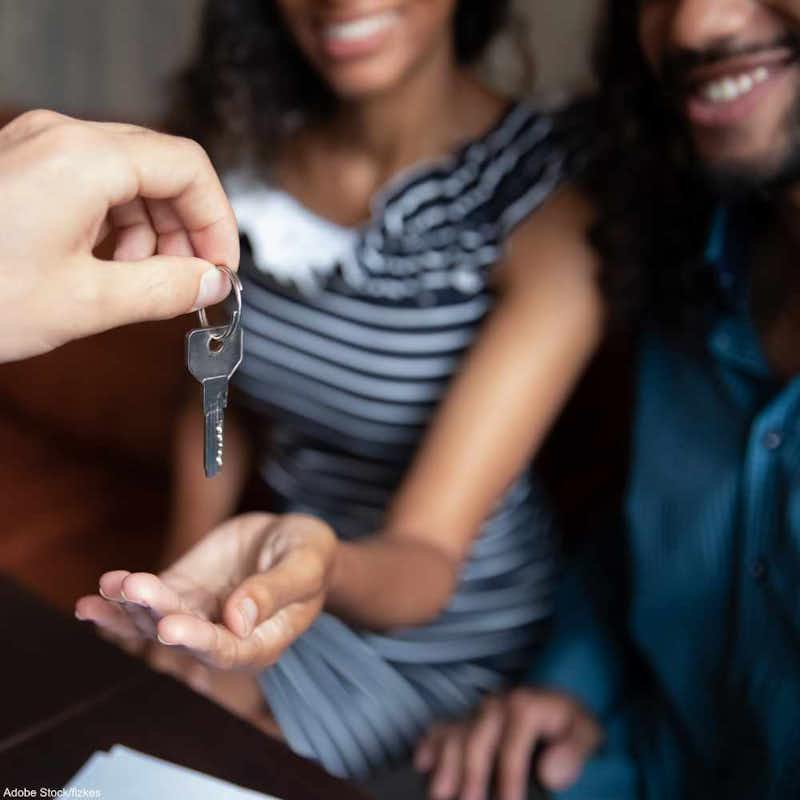Improve Access to Home and Business Loans for Black and Hispanic Americans
2,197 signatures toward our 40,000 Goal
Sponsor: The Hunger Site
Interest rates are higher and approval rates are lower for black and Hispanic Americans who apply for loans.

Race and ethnicity should not be factors that make obtaining a loan or getting a good interest rate harder, but they often are.
Only 41.3 percent of African Americans and 47 percent of Hispanic Americans own their own homes, whereas 71.9 percent of Caucasian Americans do.1 The reasons for this are often rooted in oppression and injustice.
While white Americans and Asian Americans were denied for mortgages about 11 percent of the time in 2015, Hispanic Americans were denied 19.2 percent of the time, and African Americans were denied 27.4 percent of the time.1 Such denial rates are part of the reason that fewer minorities have applied for home loans recently, contributing to the widening homeownership gap.1
Even when minority applicants are approved for loans, they tend to receive higher interest rates than Caucasians. In 2015, 73 percent of white Americans had mortgage rates below 5 percent, while fewer than two-thirds of black and Hispanic Americans did.1 Higher interest rates, of course, translate to decreased affordability and buying power.
When it comes to businesses, minorities own roughly a third of American companies, but they still have a much harder time than white people do getting business loans,2 often because they don’t have enough collateral or good enough credit scores, because they’ve never been able to borrow in the past. Minorities also tend to open their businesses in the poorer urban areas where they live, where banks are wary about lending.2
According to the U.S. Department of Commerce Minority Business Development Agency, the fear of rejection makes black and Hispanic business owners less likely to apply for loans.2 Those who are able to acquire loans often secure a smaller amount of money with a higher interest rate,2 making them more likely to experience financial difficulty.
We must acknowledge that many black and Hispanic Americans are not at fault for their lack of discretionary income, credit history, and collateral. Decades of oppression and discrimination have led to a huge wage gap and obstacles to the acquisition of wealth and credit for these minority groups.
Banks tend to be biased against applicants who have a low net worth and little discretionary income, but those are precisely the people who could benefit the most from loans.2 Short-term loans and small principle amounts don’t do much to promote significant growth for a business.
Black and Hispanic borrowers have struggled under unfair standards for decades, and it’s time to right the wrongs. We must implore the U.S. government to create and pass legislation that will make the borrowing process easier for minorities who seek loans and ensure that banks put their borrowers first, regardless of race.
- Blacks and Hispanics face extra challenges in getting home loans,” Pew Research Center; January 10, 2017.
- “Why Minorities Have So Much Trouble Accessing Small Business Loans,” Forbes; January 22, 2018.
The Petition:
Dear U.S. Congress,
Obtaining a home or business loan is hard enough, even for those people who don’t have to deal with the racism inherent in the system. For those who do experience racial injustice, getting a loan—particularly one with a good interest rate—is a nearly insurmountable task.
Years of oppression and discrimination have caused the wage gap and an overall resource gap between white populations and minority populations. This has caused black and Hispanic people to have a hard time building wealth and credit and an even harder time buying homes or businesses.
We are responsible for the errors in our imperfect system. Whether we realize it or not, we as a nation have been at fault for keeping many black and Hispanic people from having financial freedom and the ability to own homes and businesses. Now it’s time to make up for the past.
Those who have the least buying power, poor or nonexistent credit, and little collateral are often the people most in need of home or business loans to help them turn their lives around. We must offer more assistance to minority groups, reward banks who lend minorities in poor urban areas rather than penalizing them, and change the standards that determine whether a person can get a loan and what their interest rate will be.
We demand that Congress enact legislation that will protect minority borrowers from discrimination and motivate lenders to cater to black and Hispanic populations, particularly in poor urban areas. We believe these small changes will be a stepping stone toward true equality in our nation.
Sincerely,